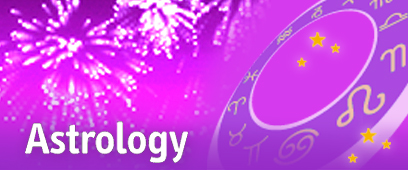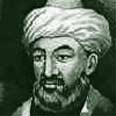

Most Jews would probably be surprised to learn astrology has played a central role in Judaism for thousands of years.
Astrology can be traced to 200 CE in passages of the Palestinian Talmud (Talmud Yerushalmi), which was written by sages in Palestine. It also appears some 200 years later in the more extensive Babylonian Talmud (Talmud Bavli) written by scholars in Babylonia.
While astrology is mentioned in the Talmud, subsequent commentaries on the Oral Law from the Middle Ages used astrology as a central tool to interpret Torah.
Professor Meir Bar-Ilan of the Jewish History Department at Bar-Ilan University in Ramat Gan, says Rabbi Avraham ibn Ezra, a leading 12th century scholar born in Spain, said, “If you don’t know astrology you can’t know the Torah.”
One book prominently mentioned in connection with Jewish astrology is Sefer Yetzirah (The Book of Creation). Bar-Ilan describes the book as a kind of “amalgamation of astrology and medicine” probably written in Tiberias sometime in the fifth or sixth century by a Jewish scholar of astrology, astronomy and other sciences.
“Although it’s not easy to understand, the Book of Creation was the trigger for the Kabala,” he says.
Rambam condemned astrology
Mainstream Judaism has been hostile to astrology, beginning with the Jewish sage Maimonides (Rambam, 1135-1204) who condemned it. Maimonides probably saw astrology as a pagan practice, and this is likely the reason he never mentions ibn Ezra in any of his works, including his well known “Guide to the Perplexed,” Bar-Ilan says.
“Jewish sages didn’t want to know it, just like someone who has a skeleton in his closet,” he says. This became the dominant attitude for the whole field of Judaic studies, so astrology was condemned.
However, Bar-Ilan says, one must also understand astrology to understand Jewish history and culture.
Despite mainstream Judaism’s hostility to astrology, it is found in Jewish liturgy. Ancient poems recited today in synagogue in one form or another mention the zodiac, Bar-Ilan says. One is read on the eve of Tisha b’Av, the fast day marking the destruction of both Jewish temples in Jerusalem.
If there was a golden age of astrology for Jews, Bar-Ilan says, it was from the beginning of the 11th century until the 16th century. Many astrologers during this period were rabbis, but not all of them. Even some rabbis who were not astrologers themselves said Jews should obey the rules of astrology.
'Mazal tov' - a good 'sign'
“If you had a big decision, you would see an astrologer,” he says. “Even a doctor would check (before performing an operation).”
Bar-Ilan cites a famous 11th century case of a wedding set to take place at a particular hour in the evening. For some reason or another, perhaps due to some argument over the dowry, the ceremony was delayed several hours. But when the time came, the rabbi refused to perform the ceremony because he felt it was no longer the correct hour for the couple. He asked that the wedding be postponed to the following day, and it was.
Even today astrology plays a role in Judaism, but most Jews are unaware of it. For example, wedding guests wish the bride and groom “mazal tov.” While most Jews understand the phrase as “congratulations,” the literal meaning is “a good sign,” and the original intended meaning was that the couple be wed under a good sign of the Zodiac.













